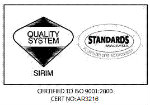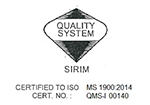Lessons From Omnipresence In Worship
As we know, Muslims fast during the month of Ramadan. They don’t just refrain from eating and drinking but also not doing certain acts to ensure their fasting is valid. Fasting is an act of worship that has no similarities with other acts of worship that can be shown or identified by the naked eye. For example, praying, paying zakat, or performing Hajj can be proven or seen by others.
Even when fasting, a person can eat and drink without the knowledge of others or perform acts that can invalidate the fast and no one would know.
In this case, the concept of God’s presence (omnipresence) can be seen in the implementation of fasting. Due to the strong awareness of the Creator’s presence, fasting is carried out with full of responsibility until 1 Syawal.
The observance of fasting with full appreciation is undoubtedly the result of education from the beginning. A person has been exposed to fasting since he was still a child. In addition, fasting is a form of worship that has become the culture of the Muslim community because the month of Ramadan is unique, special and distinctive compared to other months.
There is a culture of sahoor in the early morning before dawn and breaking the fast at sunset, while mosques and surau are lively at night because Muslims hold Terawikh Prayers in the congregation. In addition, it can be seen that Muslims read the Quran more often, either in groups or alone in this month. All these mentioned activities have become a significant culture in the month of Ramadan.
Concerning this matter, it is true that Islam and other religions teach about the importance of having good morals and the values of integrity in life. In Islam, the value of integrity is piety. Not only is the concept of omnipresence understood, but also the reward received in the afterlife for every act carried out.
Fasting in the month of Ramadan is like entering a training centre with various programmes to shape a person into becoming a servant who is more obedient to God and has a better personality and character. In short, omnipresence is genuinely lived and practiced in life. It may not be an exaggeration to state that with the realisation of the concept of omnipresence, the human need for the function of closed-circuit television (CCTV) is not as critical as it is today.
As we know that CCTV is necessary for maintaining and enhancing security. It can prevent misbehaviour and crime when accompanied by an alarm device. This tool can also help people get justice by recording evidence of an incident or possibly prosecuting suspects who have committed certain crimes.
It can even alert someone during a fire or the invasion of a dangerous animal in the premises or area. In short, this tool is handy with its ability to monitor even in dark conditions.
There is a story from Caliph Sayidina Umar bin al-Khattab about a single mother with her daughter who sells milk. Because she was not satisfied with the amount of milk obtained that day, the mother asked the daughter to mix the milk with water so that it would be more.
However, the daughter rejected the mother’s request stating that The Caliph had forbidden all forms of fraud. The mother reasoned that The Caliph would not know about the matter, but the daughter responded, saying, “It is true, my mother, Umar, does not see, but God Umar is All Seeing!” Those words defeated the mother’s wishes. The Caliph overheard their conversation. Due to the high value of purity and integrity possessed by the girl, The Caliph Sayidina Umar proposed to her to marry his son Abdul Aziz.
Their marriage gave birth to a prince named Umar bin Abdul Aziz who later became a famous ruler. He was famous for making tremendous changes in governance under his rule to protect the welfare of his people. Under the control of Caliph Umar bin Abdul Aziz, various facilities were given to the people, as well as reduced costs that lightened the people’s burden. In a short period, after only two years of His Majesty’s reign, it was told that no citizens were eligible to receive zakat. When we perform fasting, it should improve our faith and piety and form a noble personality. We don’t do any wrongdoing, not because of CCTV around us but because we believe that doing good deeds is our responsibility as servants and members of society.




